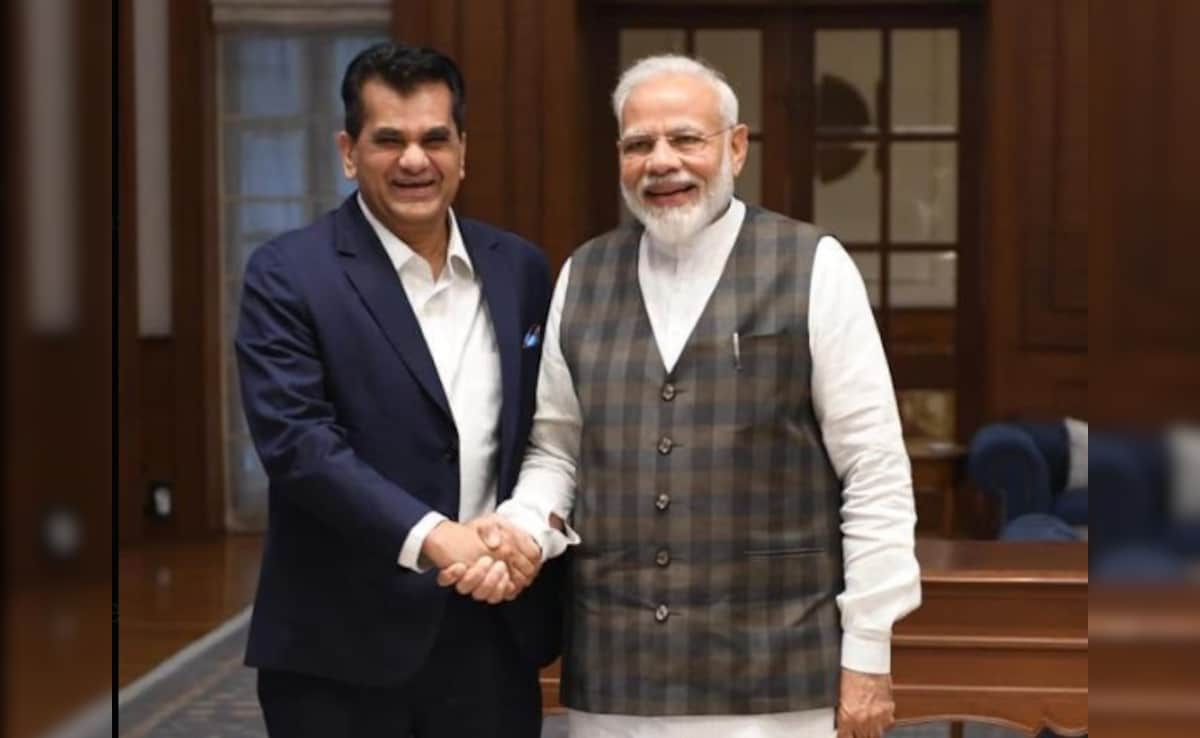New Delhi:
Delhi had decked up for the G20 summit, world leaders had flown in and the Centre’s bureaucratic machinery was working overtime to ensure a perfect show. But the summit’s success depended on one question: will there be consensus in the Leaders’ Declaration? And it is this question that Prime Minister Narendra Modi asked Sherpa Amitabh Kant an hour before the summit began.
Mr Kant has narrated this key exchange with the Prime Minister on the morning of September 9, 2023 in his book, “How India Scaled Mt G20: The Inside Story of the G20 Presidency” (Rupa Publications). The Prime Minister had reached Bharat Mandapam to review the preparations.
“I was to brief him on our progress so far. When he inquired about the Leaders’ Declaration, I outlined the conflict between the US and China and informed him that the NDLD (New Delhi Leaders’ Declaration) was still not finalised,” Mr Kant writes in his book, news agency PTI has reported.
“He paused for a moment, wondering as to why bilateral issues were being raised in a multilateral meeting, before replying that he did not want to get into the procedures or the process, but wanted to see the result – a consensus – very soon. He expected the Sherpa to navigate and secure the final agreement,” he adds.
The book details the grueling work that made the summit a success.
The Prime Minister had announced a consensus on the 37-page declaration and its subsequent adoption at the start of the second session on the opening day of the summit.
Mr Kant has detailed in his book how New Delhi managed to navigate geopolitical currents and bilateral issues to reach this consensus.
“The text continued to face constant revisions and objections after 300 hours of negotiations over 250 bilateral meetings. The weight and seriousness of the negotiations were felt by all participants, but the pursuit of a mutually agreeable outcome still seemed far from reach,” he writes. in the book.
The Prime Minister, he writes, was “acutely aware” of the stakes involved and had asked for regular briefings. “He had asked me to send him urgent situation reports every two hours, a task that demanded immense multitasking and quick analysis. This constant communication kept PM Modi informed, but also spurred us into action, helping us map out the negotiations and take stock of our progress,” he adds.
Mr Kant writes that Russia had insisted that the word ‘sanction’ be included in the declaration. Extensive discussions were held with Alexander Pankin, Russia’s Deputy Minister of Foreign Affairs, to persuade them to reconsider this.
“The stakes were high, as refusal to compromise would have left Russia isolated with a 19-1 vote against it. We finally had to tell Russia that this was not feasible and would not be accepted by other countries. We made it abundantly clear to Russia that its insistence on this matter put significant pressure on India and made it impossible for us to move forward,” Mr Kant writes.
The G20 Sherpa has said that throughout the negotiations, G7 countries — Canada, France, Germany, Italy, Japan, the UK and the US — pressured India to invite Ukraine President Volodymyr Zelenskyy, but India’s stance was to restrict the guest list to G20 leaders.
“On Dr Jaishankar’s advice, I had to inform the Russian negotiator that if they didn’t agree, the first speaker following PM Modi’s speech would be Zelenskyy. This bold and assertive negotiation tactic ultimately worked, and Russia relented,” Mr Kant writes.
There was another hurdle. Mr Kant writes that the head of the Chinese team pointed out a bilateral challenge with the US, stemming from a part of the declaration that stated that the 2026 G20 Summit would be hosted in the US.
The Chinese Sherpa, Mr Kant writes, explained that the US would not grant them visas, not even for their governor in Hong Kong. They would not agree to the geopolitical paras until they received a written guarantee that they would be issued visas, he says.
The leaders’ meeting started at 9 am and Mr Kant held parallel negotiations from 9.30 am to 11.30 am in a room adjacent to the Leaders’ Hall.
“I, along with (US Sherpa Mike) Pyle and Li (Kexin, head of the Chinese team), hammered out the details of the letter. We opted to use the term ‘ensure’ instead of ‘guarantee’. By noon, we had successfully resolved this bilateral matter, even though technically it was beyond the scope of India’s role as G20 Chair, he says, were finally on board.
Mr Kant writes that sealing a consensus on the first day of the summit was “no small feat” and cites the example of the 2022 Bali submit, where negotiations on the declaration text dragged into the final hours.





